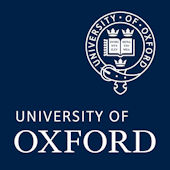Born in Urbana-Champaign (Illinois), from Italian parents who were conducting research as graduate students in the USA, I spent the first two years of my life travelling across the USA and Caribbean islands with my family. When we moved across the pond, and relocated from Illinois to Switzerland, I started to socialize with German-speaking children, in a kindergarten in Zurich. I don’t recall any English or German from those times, but being exposed to such a rich and varied cultural and linguistic environment has definitely paved the path to my research interests in creativity and multilingualism.
Ultimately my family settled back in Italy and that's where I started school, in Pisa, Tuscany. Some years later, I obtained my undergraduate degree at the University of Pisa (Italy), in foreign languages, with a major in Russian and two minors, in Spanish and Portuguese. I spent some time in Moscow, and soon realized how dramatically different speaking Russian in a classroom setting is from real-life Russian at the farmers’ market in Moscow. I therefore developed an interest in language acquisition, and earned a Master's degree in this field at the University of Pavia, Italy, with an experimental thesis on bilingual first language acquisition. During this period, I spent some months in Poland on an Erasmus scholarship, and in Germany, on an Italian exchange scholarship.
For my PhD, I commuted between Turin (the base of my PhD), London UCL, and Siena, Italy where I collected data with American English native speakers and taught Italian as a foreign language at the private institution Siena Italian Studies. Here I joined the FICCS team (Full Immersion: Culture, Content, Service), in developing an innovative teaching approach, which was later applied to other languages, supported by an EU grant (EU-FICCS). My PhD thesis focused on the structure of the mental lexicon of native speakers and foreign learners, which I modelled combining psychological experimentation and computational modelling. The tricky role played by metaphors and figurative language in general in structuring the mental lexicon of foreign learners soon got my attention. Conventionalized expressions of figurative language that are easily understood by native speakers are often very difficult to foreign learners, and they trigger very different, culturally shaped visual imagery.
Once I obtained my PhD, I applied for an EU Marie S. Curie fellowship, and moved to Amsterdam with my son, to join the Metaphor Lab, at the University of Amsterdam. Here, I coordinated and implemented the CogViM project (Cognitive Grounding of Visual Metaphor), focused on investigating how, respectively, images and words construct and express metaphors. My current involvement within the Creative Multilingualism programme constitutes the crossroad where my research interests meet, and a unique opportunity to develop and disseminate new knowledge on the interplay between multilingualism, creativity and metaphors.
Experience
-
–presentPostdoctoral Researcher, University of Oxford
Education
-
2017University of Amsterdam (NL), EU-awarded Marie Curie postdoctoral researcher
- Website
- Article Feed
- ORCID
- Joined


